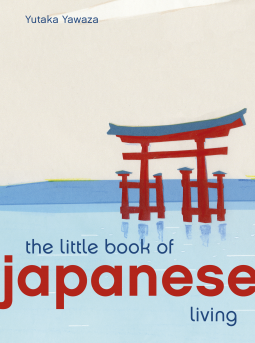Informative. History. Culture. Stereotypes. [The Little Book of Japanese Living by Yutaka Yazawa]
Previously, recapping 2019 and setting out my reading goals for 2020, I said I'd like read 100 books over the course of the year. As I average about 9 books a month, all I have to do is keep this up and I should be great. However, going into 2020 there were about eight books I'd started in 2019 that I would finish in the coming year. So to really read 100 books, I should read at least 110 let's say (I expect to surpass 100 anyway, but still). The Little Book of Japanese Living by Yutaka Yazawa is the first of the aforementioned group (of around eight books) that I've finished reading in 2020. Because of how far along I was I won't call this book, any of the eight* actually, as the first book I've read in 2020.
*Eight in-progress in 2019:
The Little Book of Japanese Living
The Dead Girls Club
Codex
The Case of the Missing Auntie
Rotherweird
Southwest Medicinal Plants
Warriors, Witches, Women
The Kew Gardener's Guide to Growing Orchids
A few days back I finished reading the Scandinavian analogue to this book, The Little Book of Scandi Living. I had a really fun time reading that because of the dry humor that narrated the reading through the book. The Little Book of Japanese Living (LBJL) was not a funny book, but I still enjoyed it. One, it was informative. As I'm currently progressing through the Duolingo course and as most of my knowledge about Japan comes from modest exposure to its history, politics, and anime/visual media, reading dedicated paragraphs on cultural practice was elucidating. Thereby, secondly, the history of cultural practices, the nation, and relevant cultural exchanges was a foregone presenting of new information - one that was enjoyed.
The narrator's viewpoint was that of someone looking to the future while being honest about factors that shaped the past. The spread of culture from China through Korea, the shifts in cultural norms that came with changing regimes - all of this new information puts Japan, or the image I had of it, in a new light. Put it all together and you can summarize it in a general statement, my third and final points, that learning about a culture breaks down or explains stereotypes. I don't think I laughed as much as I did with Scandi Living but it would seem these difference are also reflective of the respective cultures. Dry Scandinavian humour versus a Japanese modesty or reservedness. This reflected in the narration. So I will also give this book 5 stars and recommend it to the culture or history-minded reader.

Comments
Post a Comment